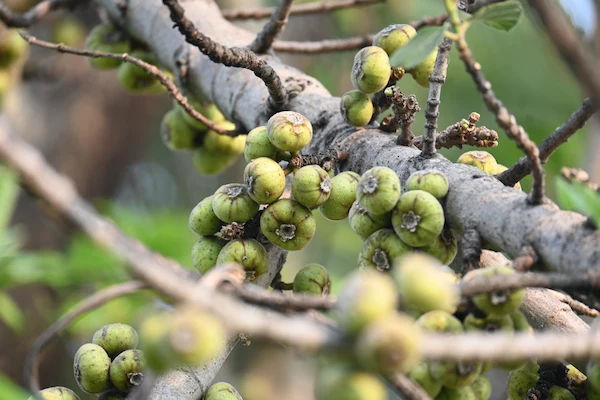The Anaesthesiologist: Your Guide to the Doctor Behind Your Surgical Success
Discover the vital role of anaesthesiologists in surgery, their training, responsibilities, and how they ensure your safety and comfort throughout your surgical journey.

Written by Dr. Dhankecha Mayank Dineshbhai
Reviewed by Dr. Siri Nallapu MBBS
Last updated on 13th Jan, 2026

Introduction
When you think about surgery, you likely picture the skilled surgeon performing the procedure. But behind every successful operation is another highly specialised doctor whose expertise is just as critical: your anaesthesiologist. Often the unsung hero of the operating room, the anaesthesiologist is a perioperative physician dedicated to your safety, comfort, and well-being before, during, and after surgery. Their role extends far beyond simply "putting you to sleep." They are masters of human physiology, expertly managing your vital functions while the surgeon focuses on the task at hand. This guide will pull back the curtain on this vital medical specialist, explaining their extensive training, their multifaceted role in your care, and why they are your most important advocate for a safe and comfortable surgical experience. Understanding their work will empower you to have informed conversations and feel more confident as you prepare for your procedure.
Who is Your Anaesthesiologist? The Master of Physiology
An anaesthesiologist is a medical doctor (MD or DO) who specialises in anaesthesia, perioperative medicine, critical care, and pain management. They are not technicians but rather physicians who have chosen to focus on the complex science of rendering a patient insensible to pain during a surgical procedure, all while ensuring their body's core functions—breathing, heart rate, blood pressure—remain stable and safe. Think of them as the internal medicine specialist for the operating room, responsible for managing your entire physiological response to the immense stress of surgery.
The Rigorous Path: Over a Decade of Specialised Training
The path to becoming an anaesthesiologist is one of the longest and most demanding in medicine, ensuring they are equipped to handle life-and-death situations.
Undergraduate Degree (4 years): A bachelor's degree with a strong focus on pre-medical sciences.
Medical School (4 years): Earns a Doctor of Medicine (MD) or Doctor of Osteopathy (DO) degree.
Internship & Residency (4 years): A one-year internship in general medicine followed by a three-year residency programme focused exclusively on anaesthesiology. Here, they train in all anaesthetic techniques, pain management, and critical care.
Fellowship (1-2 years, optional): Many pursue further fellowship training in subspecialties like pain medicine, paediatric anaesthesia, or cardiac anaesthesia.
This extensive education is what makes them experts in managing complex medical conditions under the duress of surgery.
Beyond the Mask: Their Role as a Perioperative Physician
The term "perioperative" means "around the time of surgery." This perfectly encapsulates the anaesthesiologist's role, which is not confined to the few hours you are asleep. They are involved in your care from the moment the decision for surgery is made until you have fully recovered. This holistic approach is central to modern anaesthesiology and is a key aspect of perioperative medicine.
Your Anaesthesiologist's Role: A Timeline of Care
Let's now discuss the key roles of an Anaesthesiologist
Before Surgery: The Pre-Anaesthesia Assessment
Your journey with your anaesthesiologist begins before you enter the operating room. The pre-operative assessment is a crucial meeting where they develop a personalised anaesthesia plan tailored to your unique health profile. They will review your medical history, current medications, allergies, and any previous experiences with anaesthesia.
Health topic carousel:
Doctor's speciality: Anaesthesiology
Text: Consult an Anaesthesiologist for the best advice
Key Questions Your Anaesthesiologist Will Ask
What are your known medical conditions (e.g., heart disease, diabetes, asthma)?
What medications, vitamins, or supplements do you take?
Do you have any allergies, especially to medications or latex?
Have you or a family member had a bad reaction to anaesthesia?
Do you smoke, drink alcohol, or use recreational drugs?
What is your history with issues like acid reflux or sleep apnoea?
This is your opportunity to ask questions to ask your anaesthesiologist before surgery, such as what type of anaesthesia is recommended and what the associated risks are. Being open and honest during this consultation is vital for your safety.
During Surgery: The Ultimate Guardian in the OR
Once the surgery begins, your anaesthesiologist is your constant guardian. While the surgeon is focused on the surgical site, the anaesthesiologist is managing your entire body's response.
Monitoring Your Vital Signs: A Constant Vigil
Using sophisticated technology, they continuously monitor your heart rate, blood pressure, oxygen levels, breathing, and temperature. They make minute-by-minute adjustments to anaesthetic drugs and fluids to keep your body in a state of optimal stability. This intense focus on vital signs monitoring is their primary responsibility.
Managing Pain and Consciousness: The Art of Anaesthesia
The anaesthesiologist administers a precise combination of drugs to achieve the desired state—whether it's full unconsciousness (general anaesthesia), numbness in a region of your body (regional anaesthesia), or sedation. They manage your airway, often through intubation, to ensure you breathe properly throughout the procedure.
After Surgery: Waking You Up Safely and Managing Pain
The anaesthesiologist's job isn't over when the surgeon finishes. They carefully reverse the anaesthetic drugs and guide you as you wake up. They oversee your care in the Post-Anaesthesia Care Unit (PACU or recovery room), managing pain, nausea, and any immediate post-operative complications. Their expertise in post-op care and pain relief ensures your recovery starts as comfortably as possible.
The Different Types of Anaesthesia: Tailoring Your Care
Anaesthesiologists are experts in all forms of anaesthesia and will recommend the best option for your specific surgery and health.
General Anaesthesia: A Controlled, Reversible Coma
This involves rendering you completely unconscious and free of pain. It's essential for major surgeries like open-heart procedures or abdominal surgery. The anaesthesiologist uses a combination of intravenous drugs and inhaled gases to maintain this state, closely managing the risks of general anaesthesia.
Regional Anaesthesia: Numbing a Specific Area
This technique blocks pain in a large part of the body, such as an arm, a leg, or everything below the waist. You can remain awake or be sedated. Common examples include an epidural or spinal block for childbirth or knee surgery. The benefit is excellent pain relief with fewer systemic side effects.
Local Anaesthesia and Sedation: Staying Awake but Comfortable
For minor procedures, the surgeon may inject a local anaesthetic to numb a small area. An anaesthesiologist may also provide sedation ("twilight sleep") to make you feel relaxed and drowsy, often with no memory of the procedure.
Subspecialties: When Your Anaesthesiologist Has a Special Focus
Many anaesthesiologists undergo even more training to specialise further.
Pain Medicine: Managing Chronic and Acute Pain
These specialists diagnose and treat complex pain conditions, both chronic (like back pain) and acute post-surgical pain. They perform interventions like nerve blocks and manage medication plans.
Critical Care Medicine: The ICU Specialist
Some anaesthesiologists become intensivists, who are physicians specialising in the care of the sickest patients in the Intensive Care Unit (ICU).
Paediatric Anaesthesia: Caring for Our Youngest Patients
These specialists have expertise in the unique physiological and emotional needs of infants and children, making them essential for paediatric surgery.
Why Choosing a Physician Anaesthesiologist Matters for Your Safety
You may encounter the term "anaesthetist," which often refers to a Certified Registered Nurse Anaesthetist (CRNA). While CRNAs are highly skilled advanced practice nurses, a physician anaesthesiologist has significantly more medical training (over 12,000-16,000 hours of clinical training compared to 2,500-3,000 for a CRNA). For complex cases, patients with significant medical problems, or when complications arise, the advanced medical knowledge and leadership of a physician anaesthesiologist are critical for patient safety. They often lead the Anaesthesia Care Team, supervising CRNAs to ensure the highest standard of care.
Conclusion
Your anaesthesiologist is far more than the doctor who administers the anaesthesia. They are a highly trained physician and your dedicated partner in ensuring a safe and successful surgical outcome. Their expertise in managing the body's response to the stress of surgery is a cornerstone of modern medicine. By understanding their vital role, you can approach your procedure with greater confidence. Remember, they are your advocate in the operating room. If you have any concerns about your health or the anaesthesia plan, it is always best to discuss them openly with your doctor. For complex procedures or if you have multiple health conditions, consulting with a specialist anaesthesiologist beforehand can provide significant peace of mind. Platforms like Apollo24|7 can help you connect with qualified specialists for pre-operative consultations from the comfort of your home.
Frequently Asked Questions (FAQs) About Anaesthesiologists
What's the difference between an anaesthesiologist and an anaesthetist?
An anaesthesiologist is a medical doctor (MD/DO) who has completed medical school and a multi-year residency. An anaesthetist, most commonly a Certified Registered Nurse Anaesthetist (CRNA), is a registered nurse with advanced training in anaesthesia. Physician anaesthesiologists have significantly more medical training and often lead the anaesthesia care team.
Should I be honest about smoking or recreational drug use before anaesthesia?
Absolutely. This is crucial for your safety. These substances can significantly affect how your body responds to anaesthesia drugs and impact your breathing and heart function. Your anaesthesiologist is not there to judge you but to create the safest possible plan.
What are the most common side effects of general anaesthesia?
Most side effects are minor and short-lived. They can include a sore throat (from the breathing tube), nausea and vomiting, drowsiness, and mild confusion. Your anaesthesiologist will take steps to prevent and manage these.
Can I choose my type of anaesthesia?
You can and should discuss your preferences, but the final recommendation will be based on your medical history, the type of surgery, and your surgeon's requirements. Your anaesthesiologist will explain why a particular method is safest and most effective for you.
How do anaesthesiologists calculate the right dose for each patient?
The dose is not one-size-fits-all. It's carefully calculated based on your weight, age, overall health, the type of surgery, and your vital signs during the procedure. They use sophisticated monitoring to make real-time adjustments throughout the operation.
Health topic carousel:
Doctor's speciality: Anaesthesiology
Text: Consult an Anaesthesiologist for the best advice




